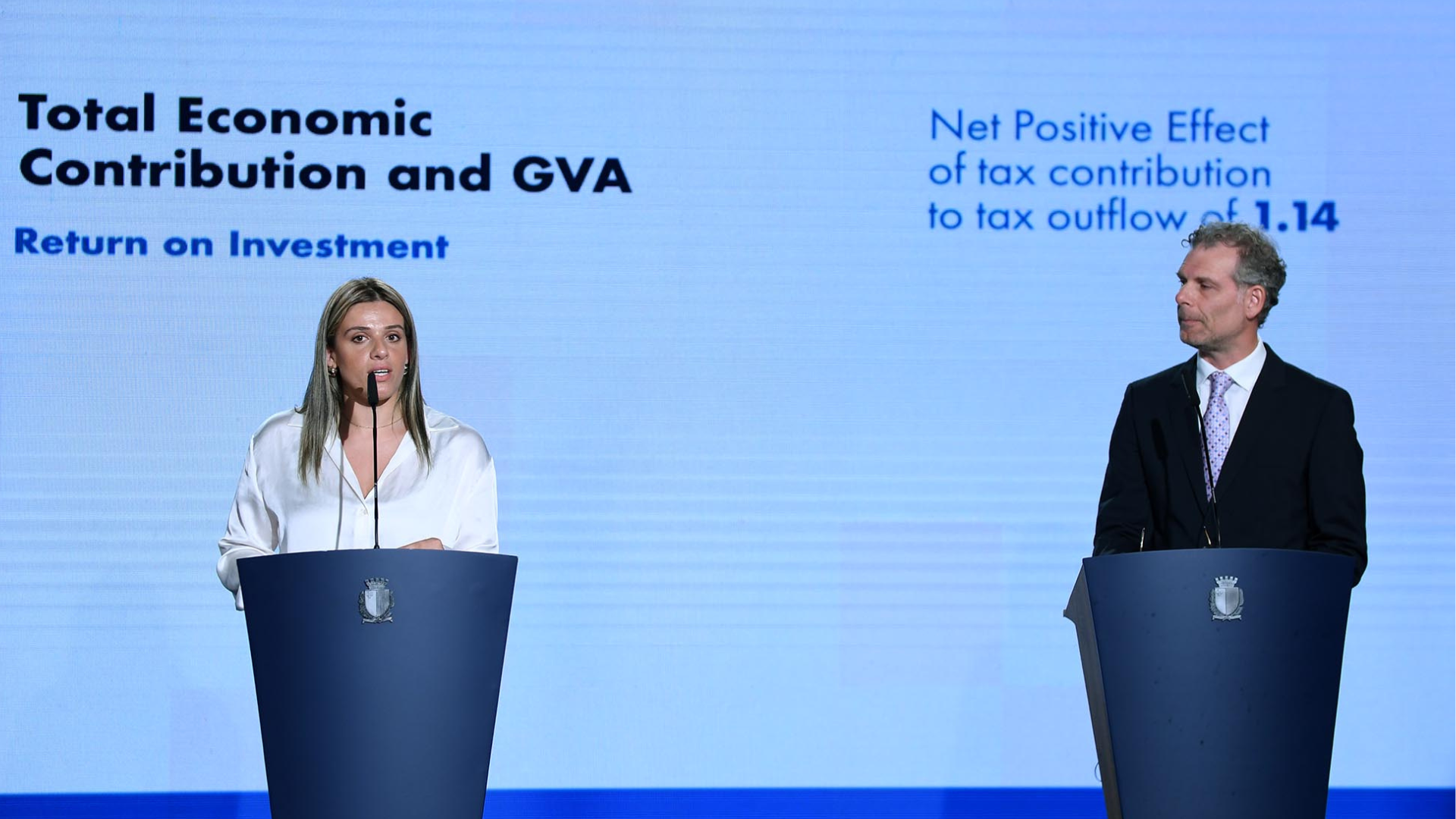Big differences in the reported findings of two unpublished studies commissioned by the Malta Film Commission a year apart have raised questions over the effectiveness of the controversial cash rebate system on the local economy and the statements of Film Commissioner Johann Grech and Tourism Minister Clayton Bartolo.
In a press conference on Friday, The Malta Film Commission claimed that for every €1 spent by the government in rebates for film productions, €3 is re-invested by the productions into the local economy, a “multiplier effect” of 3x “factually confirming” the rebate’s effectiveness.
These claims were made based on a study commissioned in May of this year for 2022, conducted by economists Jessica Camilleri and Dustin Chodorowitz.
But in January 2022, ahead of the controversial Malta Film Week, TVM News reported an earlier study commissioned by Grech and also carried out by Camilleri, claiming “for every €1 that Malta is investing in the film industry, the economy took back around €1.7” almost half the amount reported in the latest study.
At the time, Camilleri exemplified the 1.7x multiplier effect, claiming that an investment of €70 million through the scheme would result in an economic spend of “almost €120 million”.
During Friday’s press conference, Grech and Bartolo told journalists that the recent study would not be published, claiming the move was legally advised. Last year’s study similarly remained unpublished but was reported on by some local media.
Grech and Bartolo did not explain the significant increase in return on investment from 1.7 in 2021 to 3 in 2022, but they presented the threefold return as evidence of the scheme’s effectiveness.
The mismatch in the supposed economic effects of the scheme raises questions, especially since changes introduced to the rebate scheme this year allow film productions to spend outside of the local economy, increasing the scheme’s attractiveness but ostensibly lessening its economic benefits.
Controversial rebate scheme
Over the past few months, the Malta Film Commission has been criticised for spending on a generous cash rebate scheme which allows film productions, often foreign, to benefit from a 40% rebate on their spending.
Last month, The Times reported how €47 million of taxpayer funds had been committed to the Gladiator sequel as part of the scheme, with €143 million dished out to other productions over the past five years.
Freedom of Information requests from The Shift asking for cost breakdowns of the estimated expenditure were rejected by the Film Commission.
The rebate system has been criticised for allowing productions to receive cashback on costs not incurred in Malta, including actors’ salaries and hiring foreign production crew and equipment, sidelining spending on local crews.

Jessica Camilleri and Dustin Chodorowitz, the people behind the Film Commission’s unpublished study – Photo: DOI
Lack of transparency
Speaking to The Shift, local producers and industry insiders lamented the government’s lack of transparency and data on the industry.
Film-maker Martin Bonnici told The Shift, “Maltese producers have no data to go on in order to have an informed opinion or to plan for our sector and business”, claiming “the authorities treat the sector as a black box that no one can even start to analyse.”
The Malta Entertainment Industry and Arts Association told The Shift, “It is disappointing that relevant authorities have responded to requests for transparency and discussion with accusation, undermining those very same Maltese Artists that care so deeply for the industry that they have worked so hard to see thrive and grow.”
The association emphasised its support for the cash rebate system in concept. They said its current issues stemmed from “the lack of transparency and the current guidelines”, which “require redrafting to best serve the local casts and crews whilst still ensuring continued benefits for all local stakeholders working in the servicing of Film and TV.”
Other industry insiders who spoke to The Shift similarly expressed support for a rebate system, but not in its current form, also lamenting the lack of transparency from the Commission. The sources declined to comment further, citing fears of retaliation from the Film Commission.













the leading photo shows two incompetent plonkers who have no respect for taxpayers’ money.
Fearing retaliation by the film commission. Fusellu times are back? The import licence fraud by the ministers of the time. Nothing has changed.